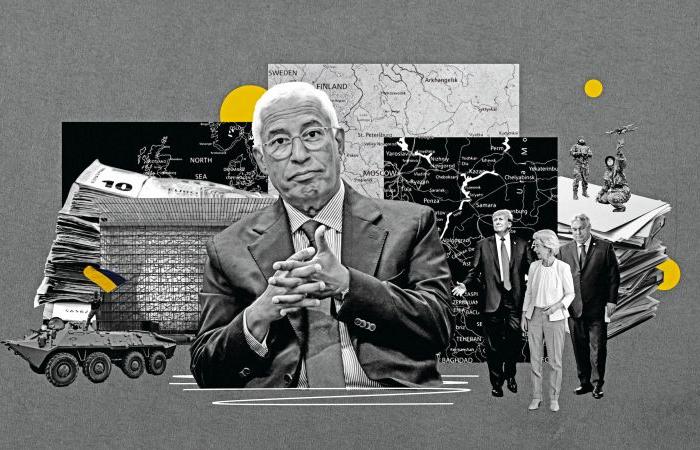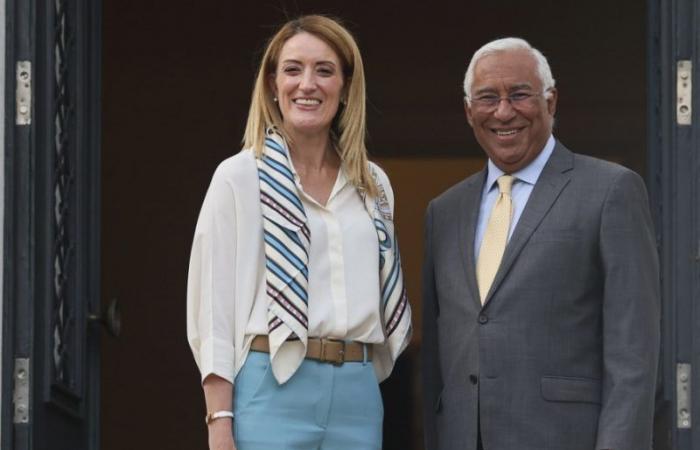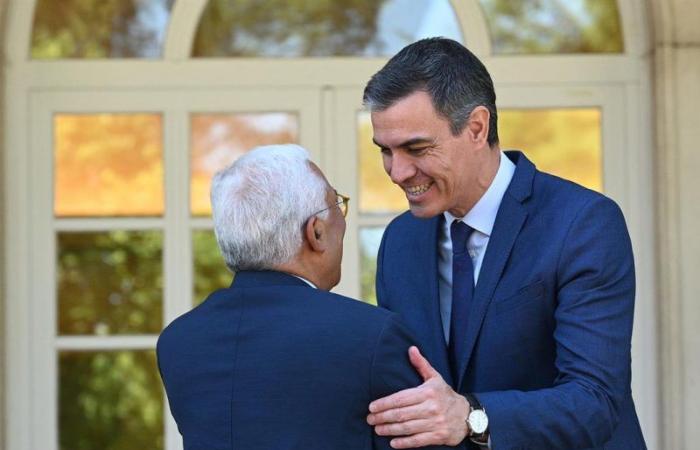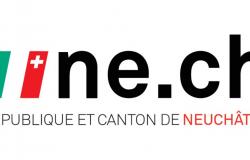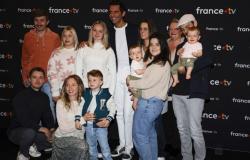António Costa takes over from Charles Michel at the head of the European Council on Friday, November 29, with the particular ambition of reforming the way the institution operates. Many also hope that, unlike his predecessor, he will work on good terms with the President of the European Commission Ursula von der Leyen.
This Friday afternoon António Costa takes the helm of the European Council, where the 27 heads of state and government of the member states of the European Union (EU) meet.
In recent months, the Portuguese has toured European capitals to find out the priorities of EU leaders for the next five years, while the Union faces major challenges, such as the definition of a common policy. on the Ukrainian issue, the anticipation of a possible trade war with China, the return of Donald Trump to the White House or even the preparation of the next multiannual budget of the Union.
A pragmatic political leader
Born July 17, 1961 in Lisbon, António Costa is the son of a political journalist and a communist writer. He descends from a large family from the former colonial trading post of Goa, India.
After studying law and political science, he became a lawyer before being appointed, at the age of 34, Secretary of State for Parliamentary Affairs in the minority government of António Guterres, the current Secretary General of the UN. He will then serve as Minister of Justice.
His pragmatism allowed him to extend his influence beyond his political family, the socialists. In 2020, he visited Hungarian nationalist Prime Minister Viktor Orbán and helps convince him not to block the post-Covid European recovery plan, crucial for Portugal.
The former Portuguese Prime Minister, a skillful tactician, proved that he was capable of leading delicate negotiations or transforming setbacks into opportunities. He had resigned as head of the Portuguese state a little over a year ago, his name having been cited in a corruption case, which did not prevent him from being designated to assume the presidency of the Advice.
A loaded context
Despite four decades of experience and his reputation as a competent manager, António Costa does not expect an easy mandate. He will take office on Sunday, December 1, and his two-and-a-half-year term may be renewed once.
The European Council is currently dominated by leaders whose parties are affiliated with the center-right European People's Party (EPP). This is also the party of Commission President Ursula von der Leyen.
Only four European prime ministers are center-left, including Spanish Prime Minister Pedro Sánchez, whose country is going through difficult times, and German Chancellor Olaf Scholz, who faces snap elections early next year.
One of António Costa's main challenges will therefore be to avoid his role being reduced to approving EPP policy.
At the same time, the European Council must come to terms with the weakening of the Franco-German couple. Added to this is an increasingly disruptive Hungary. Prime Minister Viktor Orbán's controversial diplomatic initiatives — particularly on Ukraine — hint at the potential tensions he could exacerbate, particularly with the return of Donald Trump to the presidency of the United States.
The reforms envisaged
Regarding working methods within the Council, “Member States have made it clear that things need to be streamlined”explained a senior European official to the press, before António Costa took office.
From December, the Portuguese will therefore work on streamlining EU summits, which will only last one day instead of two, as is currently the case.
European officials have often regretted that joint EU summits have become, over the years, battlegrounds over the formulation of conclusions. According to the feedback collected by the team of the new President of the European Council, the majority of leaders now wish to avoid wasting time on this aspect.
To address this concern, António Costa proposes a new institutional approach, giving the 27 EU ambassadors the possibility of participating in COREPER — responsible for preparing the work of all Council sessions — and finalizing the summit communiqués before Union leaders meet to discuss.
“It is clear that this will not always be possible, but it will be a priority [d’y parvenir dans la mesure du possible] »said the official.
According to our information, António Costa is expected to present this new approach to EU ambassadors next week. This strategy will be put to the test on December 19, when he chairs his first summit, a few weeks before the inauguration of Donald Trump.
Subsequently, António Costa's team wishes to organize “retirements” regular meetings, during which EU leaders will meet “in truly informal meetings to discuss without the pressure of producing conclusions on paper”EU officials said.
This initiative follows the request of some Member States to organize strategic discussions on more important subjects, such as defence, competitiveness and the future finances of the Union.
On the latter point, in preparation for negotiations on the next multiannual financial framework (MFF) — the EU's seven-year budget — EU officials hope the method could prove useful in saving time and eliminating conflicts before they arise.
A new institutional dynamic
The EU and capitals hope that, unlike his predecessor Charles Michel, António Costa will improve relations with Commission President Ursula von der Leyen.
The 27 heads of state and government appointed him in June to head the European Council, with the hope that he will succeed in fully playing his role as mediator, including with the European executive.
During the previous legislature, tensions between Charles Michel and Ursula von der Leyen were particularly visible during international summits, where the two officials rarely traveled or appeared together.
“Everyone wants to move on from Charles Michel, and there are high expectations that António Costa will be a consensus builder — someone who gets along with everyone, including Ursula von der Leyen”explains Ricardo Borges de Castro, visiting researcher at the College of Europe, for Euractiv.
“However, for this institutional couple to work, it will depend more on her than on him”since the German will have to “control your instincts to centralize power and your habit of not sharing information”he notes.
EU officials have expressed reservations that both sides should “play as equals” and claimed that the coming months would show whether Charles Michel was indeed the problem.
They also said the two presidents' teams aimed to streamline speeches ahead of EU summits, although many remain skeptical about the effectiveness of this move, given recurring inter-institutional clashes over previous legislatures. .
“Between José Manuel Durão Barroso Barroso and Herman Van Rompuy or between Jean-Claude Juncker and Donald Tusk, we used to organize coordination meetings before the EU summit, just to make sure the agenda was built so that no one steps on anyone else”explains Ricardo Borges de Castro, who was advisor to the former president of the European Commission José Manuel Barroso.
People close to the matter said the new European Council president should also restart regular meetings with Ursula von der Leyen once every two weeks, to coordinate their positions.
António Costa is also expected to emphasize good relations with the European Parliament, which will involve regular exchanges with the Conference of Presidents, a body which includes the heads of the political groups and the president of the hemicycle, Roberta Metsola.
With a meeting already planned ahead of the next EU summit in December, EU officials have confirmed that the three presidents of the EU institutions will meet on Monday (2 December) at the invitation of Roberta Metsola.
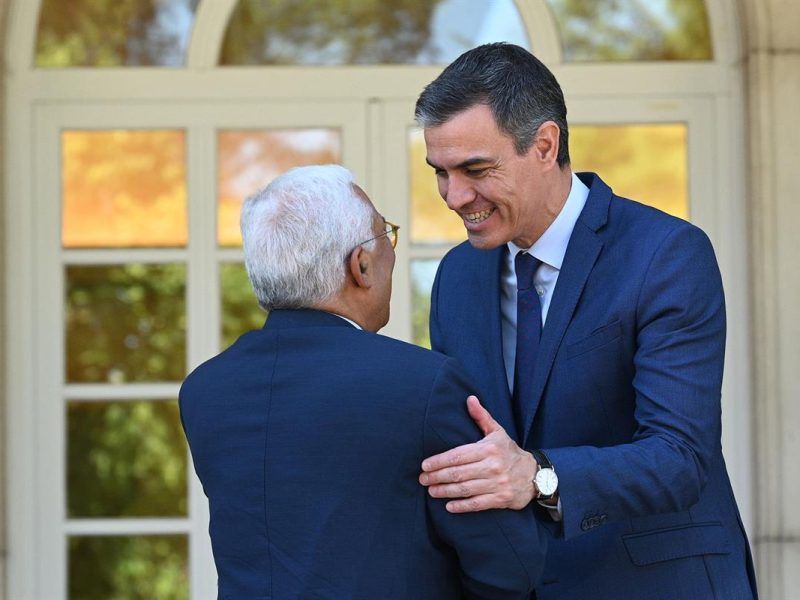
[Édité par Anne-Sophie Gayet]

